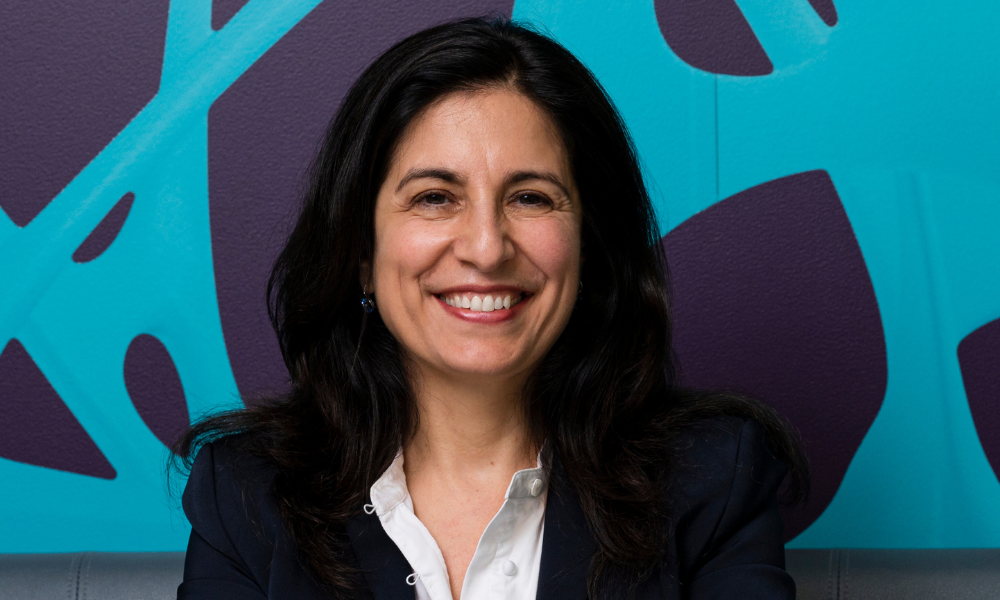Cynthia Stuckey outlines how Singapore, as an established economy fighting to remain relevant against a number of competitive newcomers in the region, can get ahead by working on engagement and bolstering the role of middle managers.
Cynthia Stuckey outlines how Singapore, as an established economy fighting to remain relevant against a number of competitive newcomers in the region, can get ahead by working on engagement and bolstering the role of middle managers.
February 19 was the start of a new year in the Chinese zodiac. The year of the horse galloped on by, making way for the year of ‘Yang’ the sheep, goat or gazelle depending on which prophet you follow.
For some, Singapore may be seen as an old goat in Southeast Asia; an established economy fighting to remain relevant against a number of competitive newcomers in the region, with the year of ‘Yang’ possibly offering more head-butts and side-kicks to productivity rather than a lucrative golden fleece.
But if anything, Singapore is persistent and is no stranger to tribulation. The ways in which organisations and their leaders handle key challenges in learning and development will be key to their success and determine how they maximise value from their investments in the year of ‘Yang’.
Employee engagement and the role of middle-managers
Business leaders and HR managers in Singapore are becoming increasingly aware of the positive impact employee engagement has on staff retention, performance and profitability. Thus, greater emphasis is being placed on employee engagement as a key strategy to improve staff retention and increase productivity across business levels.
To truly embrace employee engagement and ensure it functions most effectively, it first has to become a business imperative driven by leaders throughout all levels of the organisation. For this to occur, HR must secure its seat at the 2015 board table to enable the successful integration of employee engagement, and other core HR strategies, into all business plans.
In Asia, engagement is a significant challenge as people leadership skills are weaker compared to strong technical capabilities and requires conscious development. To effectively engage employees, middle-managers are key and must also be engaged and accountable for their actions and responsibilities.
Successful implementation of strategic initiatives requires an engaged and accountable cadre of mid-level leaders who do the indispensible work of making the CEO’s vision a reality. To cope with the great recession, many organisations curtailed their investments in middle management development, leaving many with skill gaps in mid-level leadership. In the year of ‘Yang’, with emerging markets increasing competition in Southeast Asia and the focus on keeping pace intensifying, it's the companies that focus on equipping their middle-managers that will lead the flock.
To successfully manage these challenges focused training of mid-level leaders is required so that they are able to become more involved in engaging employees on an individual level, while also working together with upper management to transform employee engagement into a company-wide commitment instead of a task purely delegated to HR.
Demand for leaders who inspire trust
Forum has produced global research to show a direct link between trust and engagement, which indicated that the more leaders inspire trust in their team the more energised and motivated they will be. Based on our research, the way leaders build trust is through the way they communicate and behave. To remain competitive and high performing, businesses in Southeast Asia will need leaders that know how to build and maintain a climate of trust within their teams, something that is traditionally and culturally foreign to the region.
The four most effective tactics for inspiring trust are:
When trust is low, clarity is reduced and less focus put on accelerating strategic initiatives and promoting success. At the same time, navigating the complex inter-connectedness of today’s global business environment requires that we also work with ambiguity. Organisations that figure out how to balance clarity and ambiguity will have a winning formula that leaders can use to drive results.
Skill gaps are widening
While the Southeast Asian market is experiencing high growth, Singapore is struggling to keep up with productivity. In the year of ‘Yang’, businesses will require a diverse set of skills to respond to fast changing market conditions and remain competitive. Companies will need to constantly modify and develop their leaders at all levels to ensure they close skill gaps to enable the workforce to increase productivity, while also balancing the needs of new talent entering the workforce.
Many companies have limited resources to work with due to a shortage of talent in Asia. To safeguard against this issue, businesses must establish clear career paths for all staff to retain and develop skills in line with the needs of the local market and business. This also means focusing on the careers of existing and older employees to ensure they are continually learning, growing and adding value, as well as mapping out attractive career pathways for newcomers.
Focus on talent development
Most learning and development occur at work, which highlights the need to sustain and embed learning into everyday work life. Not only training, but ongoing coaching will be essential in maintaining a highly engaged, intellectually stimulated and productive workforce.
Toward the end of 2014, the Singapore Government released the Continuing Education and Training (CET) 2020 Masterplan that supports efforts to restructure the economy, develop a career-resilient workforce and build deeper expertise in Singapore’s personnel, with increased involvement by employers in enhancing and valuing skills.
While initiatives like this offer positive support, the bottom line is that organisations have to be more proactive and structured in how they develop their people. Successful businesses devote time, energy and resources to advancing people and the organisations in which they perform. It is companies that implement leadership development that tightly aligns with the organisation's growth that will not only endure but also get the greatest value from their investment in the year of ‘Yang’.
About the author:
Cynthia Stuckey is the Asia Pacific Managing Director of The Forum Corporation. Forum is a recognised global leader in linking leadership development and sales effectiveness training to strategic business objectives. For more information, visit: www.forumasiapacific.com.sg.
February 19 was the start of a new year in the Chinese zodiac. The year of the horse galloped on by, making way for the year of ‘Yang’ the sheep, goat or gazelle depending on which prophet you follow.
For some, Singapore may be seen as an old goat in Southeast Asia; an established economy fighting to remain relevant against a number of competitive newcomers in the region, with the year of ‘Yang’ possibly offering more head-butts and side-kicks to productivity rather than a lucrative golden fleece.
But if anything, Singapore is persistent and is no stranger to tribulation. The ways in which organisations and their leaders handle key challenges in learning and development will be key to their success and determine how they maximise value from their investments in the year of ‘Yang’.
Employee engagement and the role of middle-managers
Business leaders and HR managers in Singapore are becoming increasingly aware of the positive impact employee engagement has on staff retention, performance and profitability. Thus, greater emphasis is being placed on employee engagement as a key strategy to improve staff retention and increase productivity across business levels.
To truly embrace employee engagement and ensure it functions most effectively, it first has to become a business imperative driven by leaders throughout all levels of the organisation. For this to occur, HR must secure its seat at the 2015 board table to enable the successful integration of employee engagement, and other core HR strategies, into all business plans.
In Asia, engagement is a significant challenge as people leadership skills are weaker compared to strong technical capabilities and requires conscious development. To effectively engage employees, middle-managers are key and must also be engaged and accountable for their actions and responsibilities.
Successful implementation of strategic initiatives requires an engaged and accountable cadre of mid-level leaders who do the indispensible work of making the CEO’s vision a reality. To cope with the great recession, many organisations curtailed their investments in middle management development, leaving many with skill gaps in mid-level leadership. In the year of ‘Yang’, with emerging markets increasing competition in Southeast Asia and the focus on keeping pace intensifying, it's the companies that focus on equipping their middle-managers that will lead the flock.
To successfully manage these challenges focused training of mid-level leaders is required so that they are able to become more involved in engaging employees on an individual level, while also working together with upper management to transform employee engagement into a company-wide commitment instead of a task purely delegated to HR.
Demand for leaders who inspire trust
Forum has produced global research to show a direct link between trust and engagement, which indicated that the more leaders inspire trust in their team the more energised and motivated they will be. Based on our research, the way leaders build trust is through the way they communicate and behave. To remain competitive and high performing, businesses in Southeast Asia will need leaders that know how to build and maintain a climate of trust within their teams, something that is traditionally and culturally foreign to the region.
The four most effective tactics for inspiring trust are:
- Listening to employees and understanding their concerns
- Walking the talk – managers doing as they say and modelling positive behaviour
- Following through on commitments
- Encouraging employees to offer ideas and suggestions.
When trust is low, clarity is reduced and less focus put on accelerating strategic initiatives and promoting success. At the same time, navigating the complex inter-connectedness of today’s global business environment requires that we also work with ambiguity. Organisations that figure out how to balance clarity and ambiguity will have a winning formula that leaders can use to drive results.
Skill gaps are widening
While the Southeast Asian market is experiencing high growth, Singapore is struggling to keep up with productivity. In the year of ‘Yang’, businesses will require a diverse set of skills to respond to fast changing market conditions and remain competitive. Companies will need to constantly modify and develop their leaders at all levels to ensure they close skill gaps to enable the workforce to increase productivity, while also balancing the needs of new talent entering the workforce.
Many companies have limited resources to work with due to a shortage of talent in Asia. To safeguard against this issue, businesses must establish clear career paths for all staff to retain and develop skills in line with the needs of the local market and business. This also means focusing on the careers of existing and older employees to ensure they are continually learning, growing and adding value, as well as mapping out attractive career pathways for newcomers.
Focus on talent development
Most learning and development occur at work, which highlights the need to sustain and embed learning into everyday work life. Not only training, but ongoing coaching will be essential in maintaining a highly engaged, intellectually stimulated and productive workforce.
Toward the end of 2014, the Singapore Government released the Continuing Education and Training (CET) 2020 Masterplan that supports efforts to restructure the economy, develop a career-resilient workforce and build deeper expertise in Singapore’s personnel, with increased involvement by employers in enhancing and valuing skills.
While initiatives like this offer positive support, the bottom line is that organisations have to be more proactive and structured in how they develop their people. Successful businesses devote time, energy and resources to advancing people and the organisations in which they perform. It is companies that implement leadership development that tightly aligns with the organisation's growth that will not only endure but also get the greatest value from their investment in the year of ‘Yang’.
About the author:
Cynthia Stuckey is the Asia Pacific Managing Director of The Forum Corporation. Forum is a recognised global leader in linking leadership development and sales effectiveness training to strategic business objectives. For more information, visit: www.forumasiapacific.com.sg.





